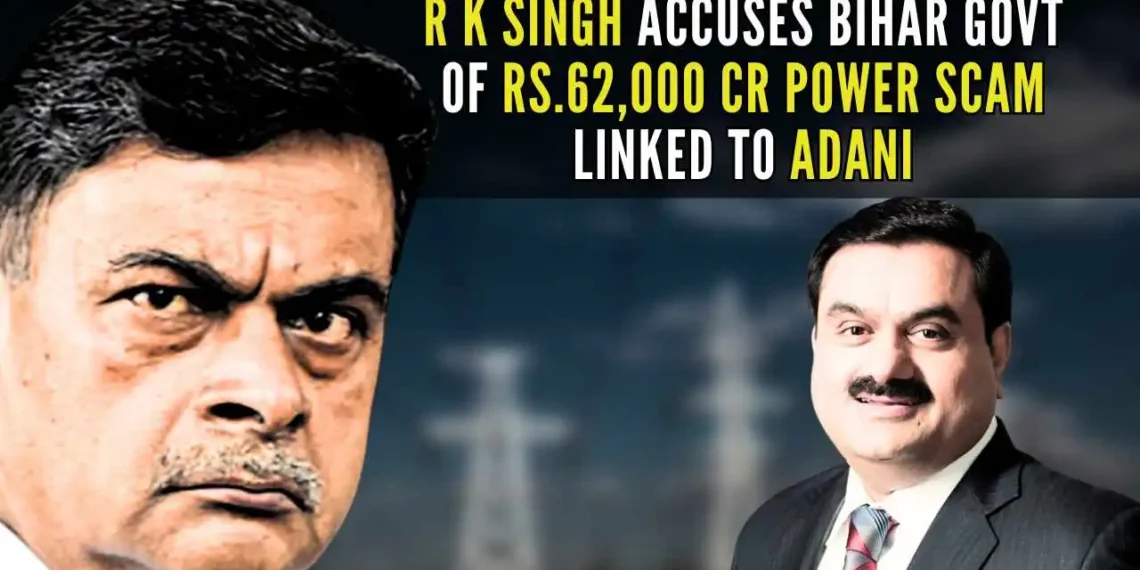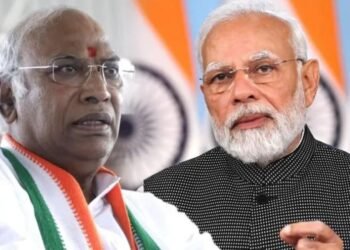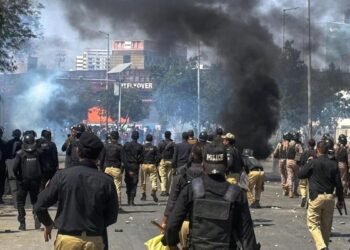Former Union Minister RK Singh’s recent charges have jolted the political establishment. Known for his clean image and disciplined administrative career, Singh’s statements have added weight to growing questions about transparency and decision-making in government. His record of integrity makes his revelations difficult to dismiss as mere political theatre.
By Navin Upadhyay
In the cacophony of Bihar’s election season—where rhetoric reigns and alliances shift—a single voice has risen above the noise, not through bluster but credibility. Former Union Power Minister Raj Kumar Singh (RK Singh), a man whose four-decade career in public service has been virtually spotless, has accused the Nitish Kumar-led NDA government of causing a ₹62,000-crore loss to the state by awarding the 2,400 MW Pirpainti Thermal Power Project to Adani Power.
To dismiss Singh’s words as those of a “disgruntled” ex-minister is to overlook the record of one of Bihar’s most upright administrators—a man known for discipline, integrity, and defiance of political compromise.
A Bureaucratic Titan: From Patna’s Streets to Delhi’s Power Corridors
Joining the IAS in 1975, Singh’s early years as District Magistrate of East Champaran and Patna earned him respect across the bureaucracy.
His firm but fair handling of the 1984 anti-Sikh riots in Patna, quelling violence in just two days, remains part of Bihar’s administrative lore. “He restored order without bending to political pressure,” recalls a former colleague.
As Home Secretary of Bihar (1997–1999), Singh revamped the state’s policing structure, and during his stints as Principal Secretary, Roads and Disaster Management, he steered Bihar through the 2008 Kosi floods, earning cabinet commendations for efficiency and transparency.
At the national level, Singh served with distinction as Joint Secretary in the Home Ministry under LK Advani, Secretary of Defence Production, and later as Union Home Secretary (2011–2013), where he fearlessly took on internal security crises—even clashing with political superiors over interference in probes like the IPL spot-fixing case.
In a system often marred by corruption, Singh’s record is uniquely clean. His declared assets remain modest, and no allegations have ever tainted his name.
READ: Who Is This Second Biren Singh in Manipur Politics?
READ: Two Most-Wanted Indian Gangsters Nabbed in USA, Georgia
From Bureaucrat to Minister: Reforming India’s Power Sector
After retiring in 2013, Singh entered politics with the BJP, winning the Arrah Lok Sabha seat in 2014 and 2019. As Union Power Minister (2019–2024), he oversaw one of India’s most transformative energy overhauls—turning deficit into surplus, expanding renewables, and modernizing the national grid to handle peak loads of 197 GW.
“Singh benchmarked power costs, pushed for open bidding, and resisted pressure from corporate lobbies,” notes a former ministry official. Even his intra-party criticisms—such as flagging flaws in BJP’s Bihar ticket distribution—were rooted in principle, not politics.
After @ABPNews deleted their video of BJP leader and Former Union Minister RK Singh’s interview alleging a major scam between Adani and Bihar govt, @ajitanjum Interviews him.
Why are other Major News channels silent? Order from PMO??pic.twitter.com/RE2lR2rXIK https://t.co/PGMhfuPk5H— Mohammed Zubair (@zoo_bear) November 5, 2025
The Pirpainti Allegations: A ₹62,000-Crore Red Flag
Now, after his 2024 electoral defeat to CPI(ML)’s Sudama Prasad, Singh has turned whistleblower. He alleges that Bihar’s Pirpainti Power Project, valued at ₹24,900 crore during his tenure (₹10 crore per MW), was handed to Adani Power at an inflated ₹15 crore per MW—raising the cost to ₹36,000 crore and locking the state into a 25-year deal at ₹4.16 fixed charge per unit.
“This translates to a ₹62,500 crore burden on Bihar’s taxpayers,” Singh told The Indian Express. “From my experience as Power Minister, this pricing defies logic. It deserves a forensic review.”
Adani Power insists the project followed a “transparent competitive bidding” process under Bihar’s 2025 Industrial Policy, with land leased—not sold—at nominal rent. But Singh argues that the state ignored technical benchmarks his ministry had established, resulting in massive overvaluation.
BREAKING: A massive ₹62,000 crore scam rocks the BJP–JDU government in Bihar!
Former Power Minister and senior BJP leader R.K. Singh himself has exposed that Adani was handed a power plant contract at highly inflated rates — a loss that Bihar’s people will bear.@narendramodi… pic.twitter.com/qHQoL2nkCh
— SS Kim (@KimHaokipINC) November 4, 2025
Integrity vs. Influence: Why Singh’s Voice Matters
Skeptics note Singh’s strained relations with BJP leadership after being sidelined from the poll committee, yet his credibility endures. This is, after all, the same officer who once arrested LK Advani on Lalu Prasad’s orders during the Ram Rath Yatra, executing the politically explosive operation with textbook precision.
In Bihar’s current climate—where power and politics often merge—Singh’s allegations carry the gravity of experience, not vendetta. “When a man who reformed India’s power system says a deal smells wrong, it deserves more than a press rebuttal,” says a Patna-based analyst.
The Congress has since demanded a CBI probe, calling the episode a “double-engine corruption case.” But Nitish Kumar’s government has stayed silent.
READ: BJP’s Clean Air Promise Fade into Smog: Delhi Battles Toxic Haze
A Call for Accountability
RK Singh’s career—spanning riot control, disaster relief, and power reform—has been one of rare integrity. His allegations about the Pirpainti project are not political fireworks but a red flag from a technocrat who knows the system inside out.
As Bihar votes, Singh’s revelations test the NDA’s promise of clean governance. Whether the state responds with transparency or evasion will decide not just the fate of one project—but the credibility of its entire governance model.
When a man with nothing left to gain and everything to lose raises an alarm, India should listen.














